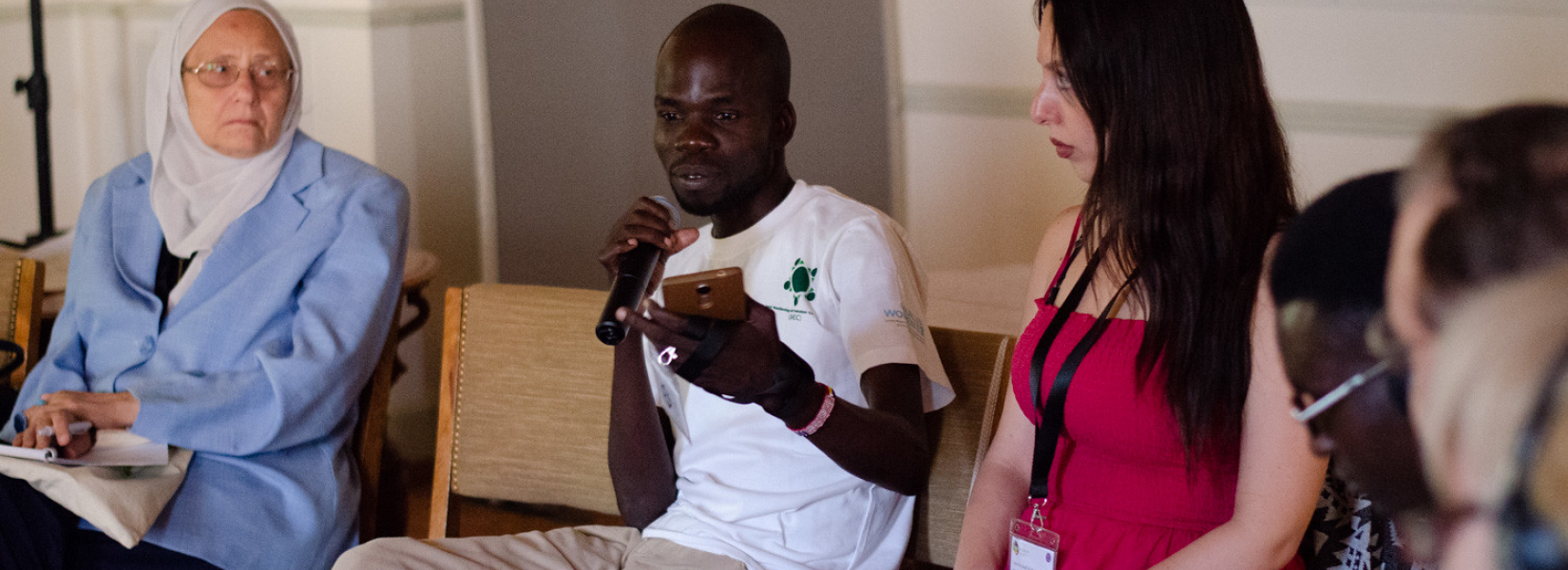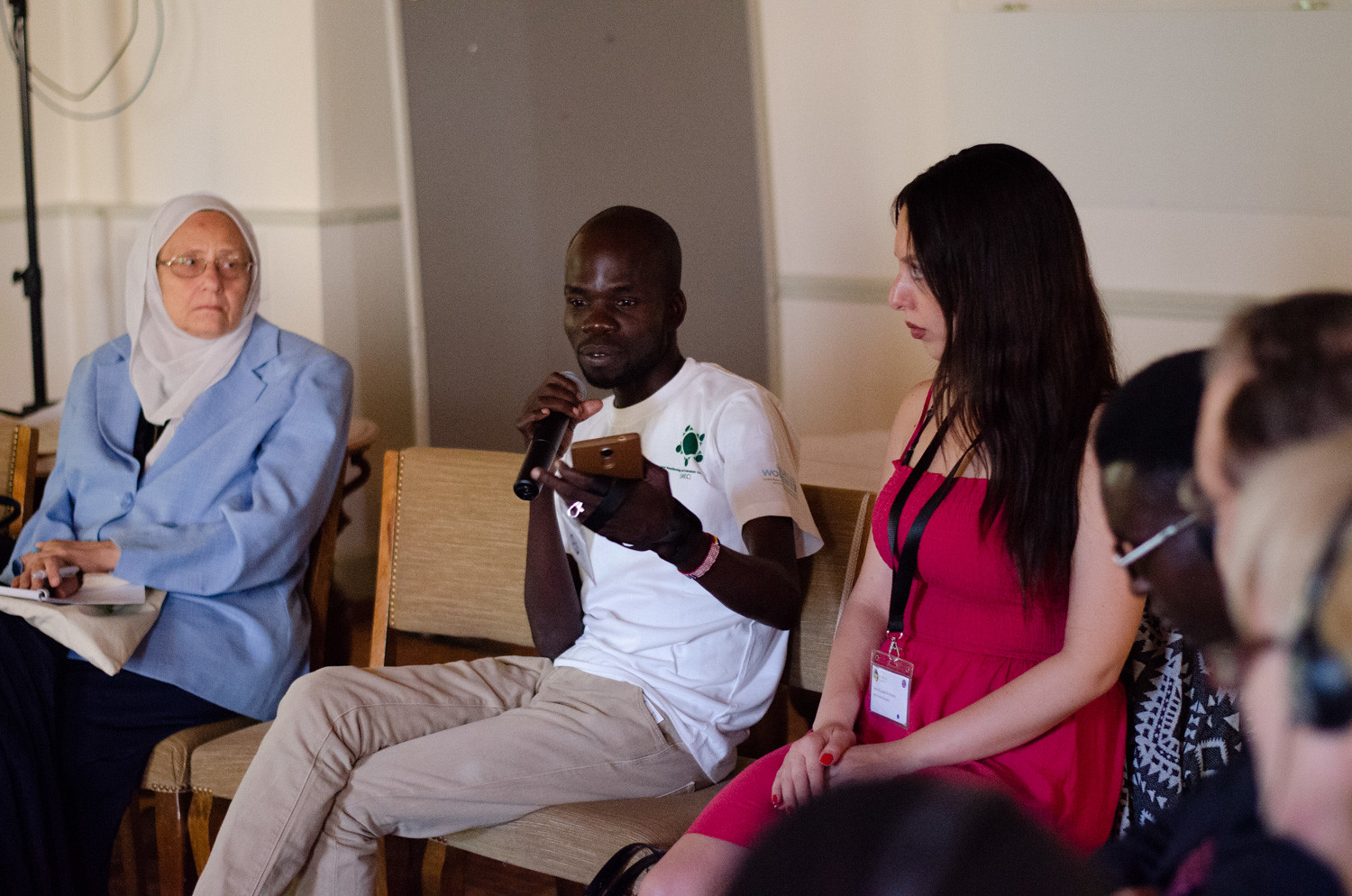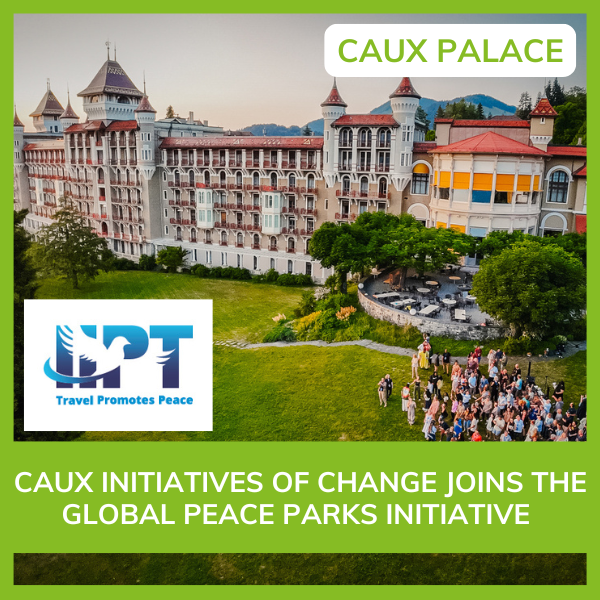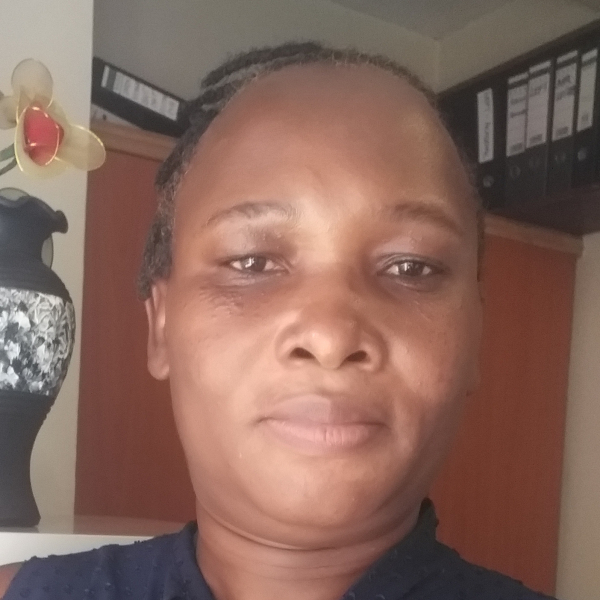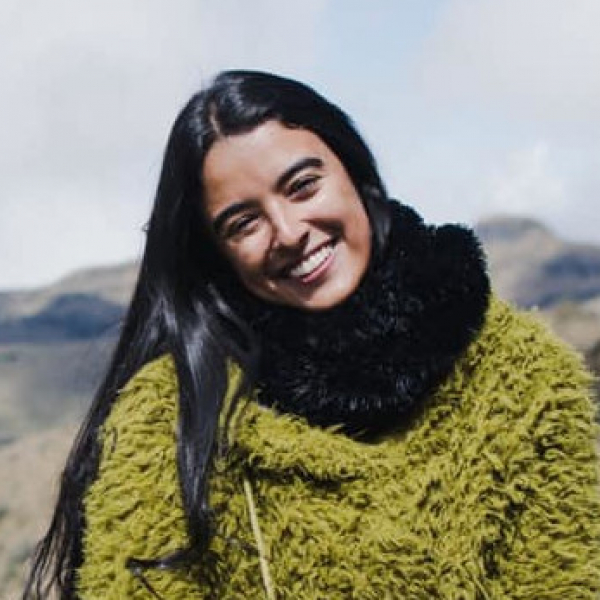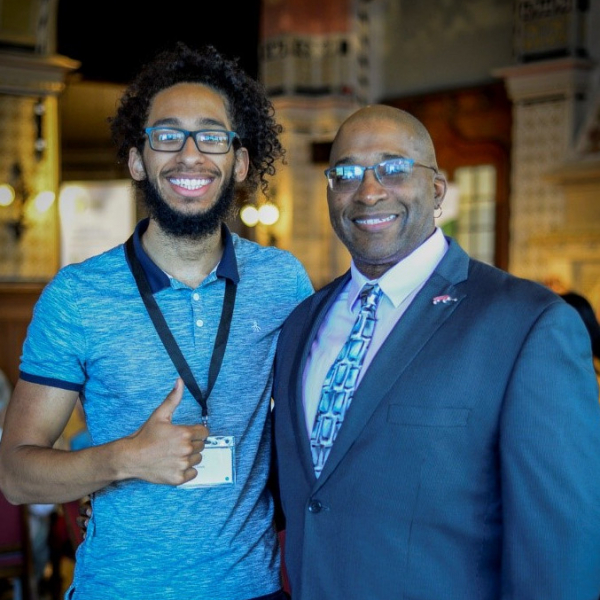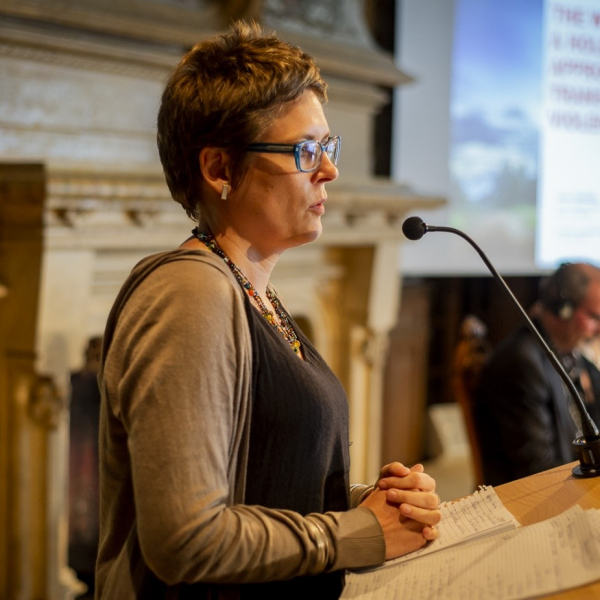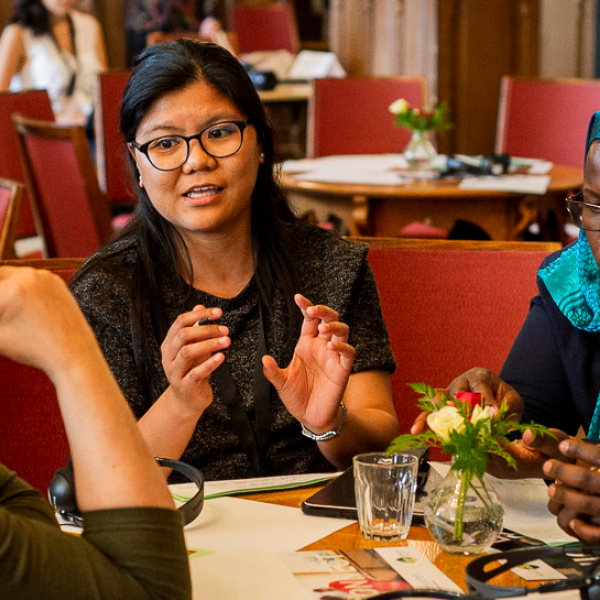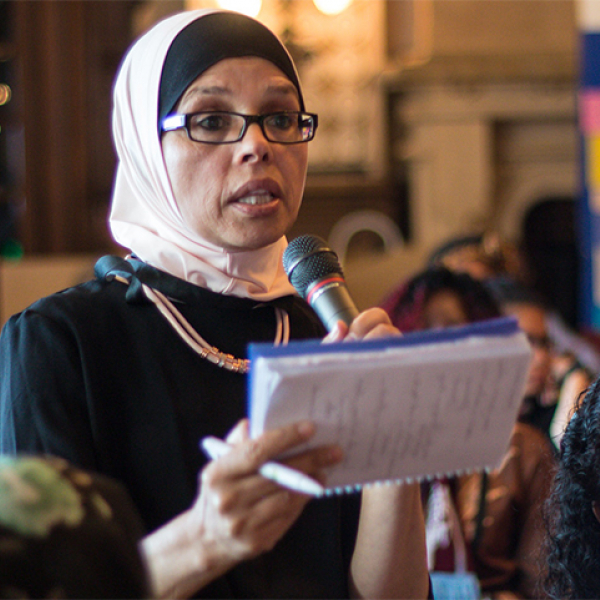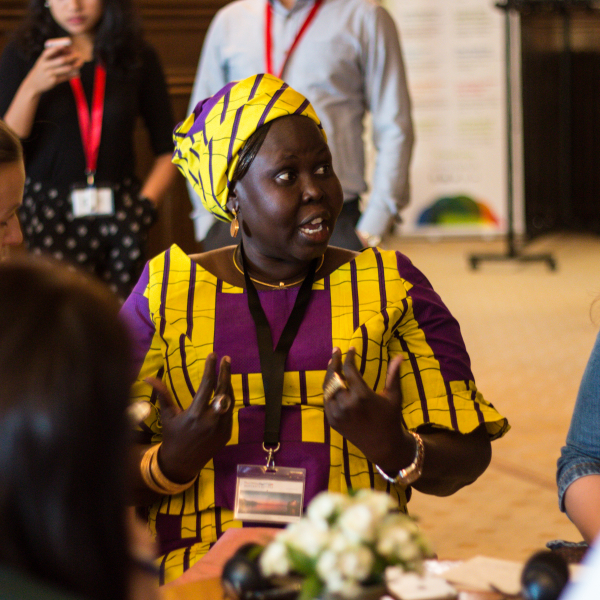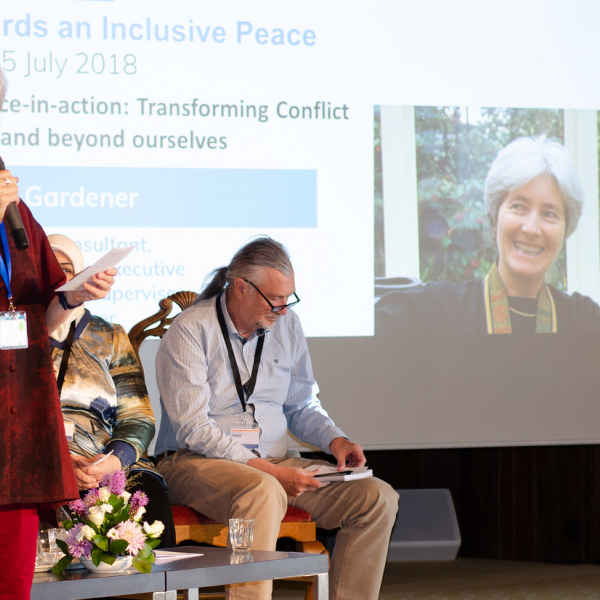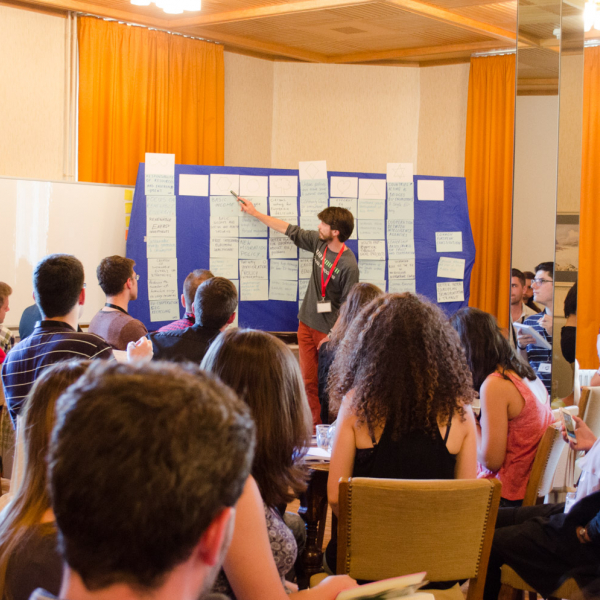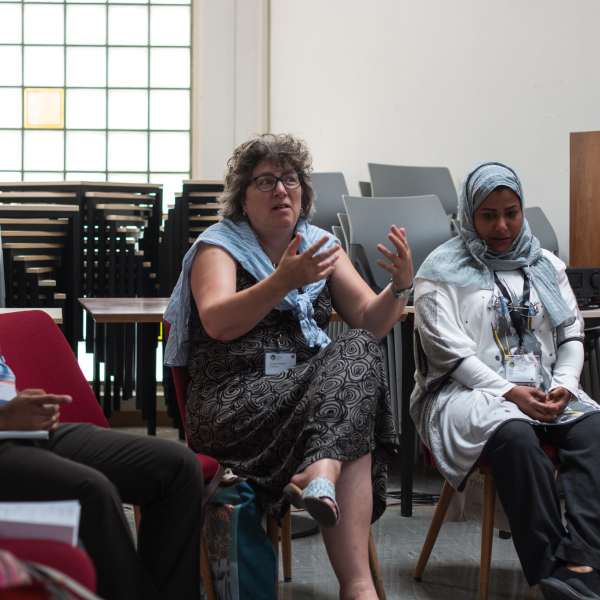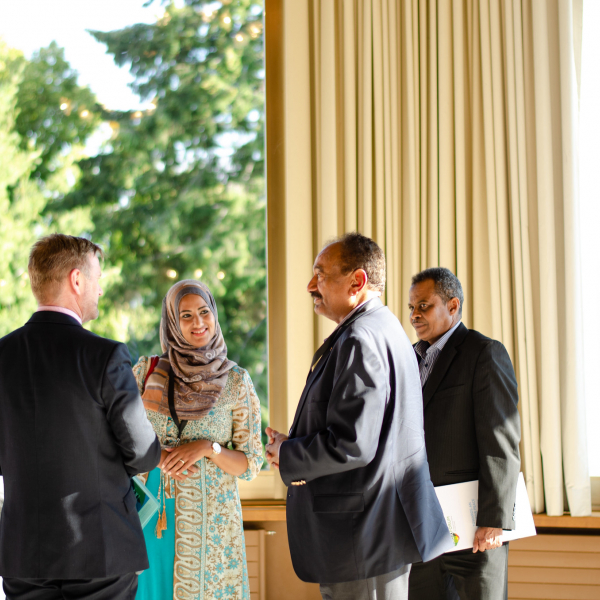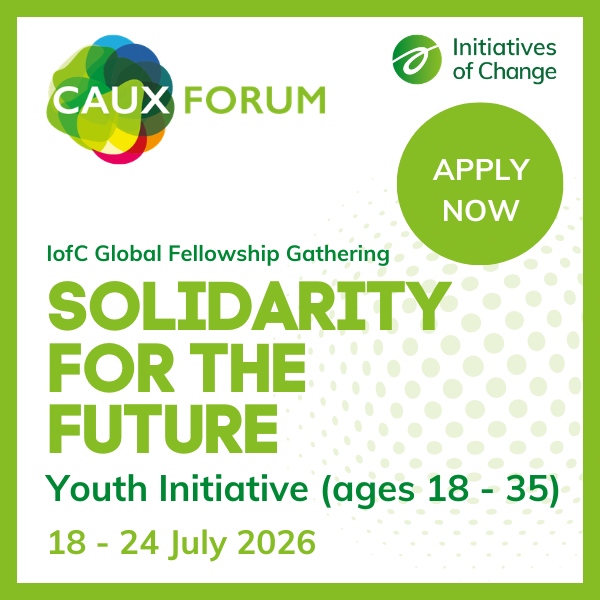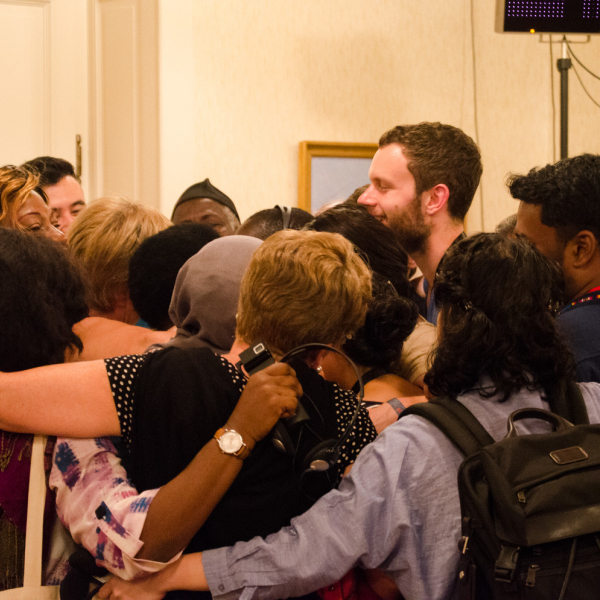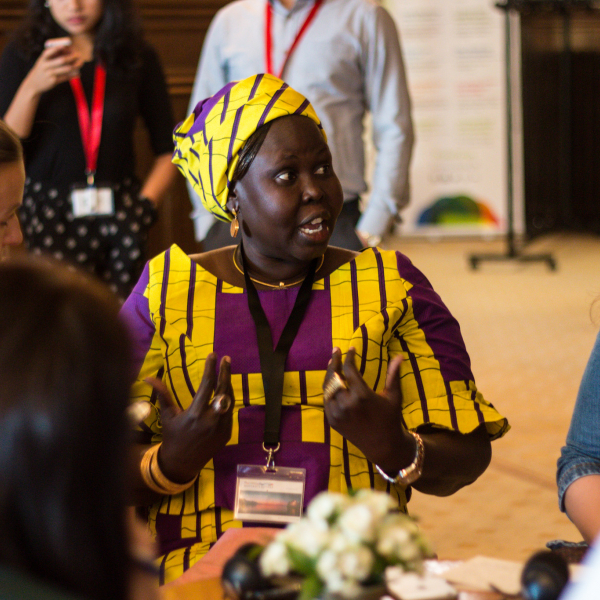TIP 2018: "Where are we going to go from here?”
Towards an Inclusive Peace 2018
13/07/2018
Today at Towards an Inclusive Peace, we discussed the power of restorative justice. On July 12, Dr. Carl Stauffer, Associate Professor at Eastern Mennonite University, and Thalia González, Associate Professor of Politics at Occidental College, opened the conversation with a discussion about how restorative justice practices can address violent extremism. Restorative justice isn’t just saying sorry, it’s “doing sorry” through active listening and participating in the restoration process.
The voices of the marginalized and victimized must be centered in these processes, explained Carl Stauffer. He shared that restorative justice practices may include facilitation and mediation techniques, as well as circle processes. Thalia González described how restorative justice can work in school systems to break the school-to-prison pipeline which furthers punitive justice practices. In juvenile justice systems, restorative justice (although not always called that) can also help repair harm and bring reconciliation to offenders and victims.
The afternoon was comprised of several workshops about restorative justice and self care. Trainings included guidance and information about inter-religious dialogue, gender perspectives, practical tools, personal change, and human rights education. Nearly 150 participants spread out among five sessions in the afternoon to explore and learn from presenters, speakers, and each other.
In one session, titled “Restorative Justice: From Theory to Practice,” Thalia González, who is also a Senior Visiting Scholar at Georgetown Law, taught participants how to have honest and open conversations using a circle model. With circles, it’s important to use language carefully and respect the cultures of all participants in the group. This model can set the stage for building shared values, trust and confidence between those involved. Using natural elements such as the environment, water, stones, and sticks can also be a powerful way for the group to connect individuals and open the discussion.
Tomorrow, we’ll talk about how communities can address violent extremism at the local level through narrative change techniques, ethics education, and more.
Follow the discussion online with #CauxForum and #CauxTIP!
